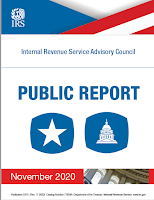The Taxpayer First Act (TFA) of 2019 requires the IRS to provide digital signature options for Form 2848, Power of Attorney, and Form 8821, Tax Information Authorization.
These improvements will help individual taxpayers, business taxpayers, and the tax professionals who serve them. These authorization forms are critical for tax professionals to either represent clients before the IRS or to prepare prior year tax returns. By signing the forms, taxpayers are giving tax professionals or other third parties permission to access or view their tax information.
Currently, submitting and processing these authorization forms is a paper operation. Tax professionals typically complete the forms and taxpayers sign them with a pen. The forms are mailed or faxed to the IRS. The faxed forms are printed or distributed electronically to the staff in the Centralized Authorization File (CAF) Unit. These teams review the forms for accuracy and fraud before adding the information to the CAF database.
Even before COVID-19, the IRS was working on CAF improvements and making the TFA requirements a reality. Here’s an important look at what’s ahead:
- In January, the IRS plans to launch a new IRS.gov secure submission platform and a new page, “Submit Forms 2848 and 8821 Online,” that will allow tax professionals to upload third-party authorization forms electronically.
- Tax professionals will enter their Secure Access username and password or complete a Secure Access registration to authenticate their identities.
- Taxpayers and tax professionals can sign the forms electronically or with ink, and then upload the image of the form to the IRS.
This new online submission process will not eliminate the reviewing and processing time by the CAF staff. But it gives tax professionals and taxpayers a safe option to electronically sign and upload these critical documents without an in-person meeting. Especially in these uncertain times, keeping taxpayers and tax professionals safe is a top IRS priority.
Just as tax professionals are required to do for every electronically filed tax return, they’ll need to verify the taxpayer’s identity if there’s an electronic signature and the client is unknown to them. The IRS is planning on using a similar process as outlined by Publication 1345, Handbook for Authorized IRS e-File Providers PDF. This verification process should be familiar to tax professionals.
This New IRS.gov Third-Party Authorization Submission Process Will Not Be The Only Electronic Option For
Forms 2848 And 8821.
Next summer, the IRS plan on launching a platform called the Tax Pro Account. At launch, the Tax Pro Account will serve as the point of entry for tax professionals to electronically initiate and sign an online third-party authorization form.
That third-party authorization form will electronically transfer into the client’s IRS online account. Clients can access their personal IRS account and electronically sign the document. The document goes directly to the CAF, posting immediately. There’s no wait time, no backlog. The Tax Pro Account is an electronic operation from beginning to end.
When they’ve completed these projects next year, tax professionals will have four submission options:
- upload on IRS.gov,
- initiate electronically via Tax Pro Account,
- mail to IRS and
- fax to IRS. Because of the risk of fraud, we cannot accept electronic signatures on mailed or faxed authorization forms.
This electronic signature process is part of a larger effort underway at the IRS following the Taxpayer First Act.
Have IRS Tax Problems?
Contact the Tax Lawyers at
Marini & Associates, P.A.
www.TaxAid.com or www.OVDPLaw.com
or Toll Free at 888 8TAXAID (888-882-9243)
Read more at: Tax Times blog







